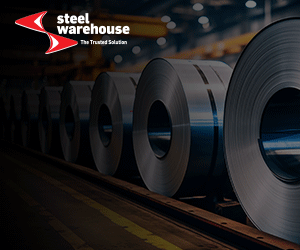What Lies Ahead with ERP
As metalworking grows ever more competitive, Mike Melzer and Dusty Alexander of Global Shop Solutions explain why managing the supply chain of your external factory is more important than ever.
Posted: March 18, 2013
As metalworking grows ever more competitive, here are some reasons why managing the supply chain of your external factory is more important than ever.
We see five major trends impacting small to mid-size manufacturing firms in the coming year:
More Just-in-Time
Most companies are growing again after the lengthy recession, but they’re still very protective of cash flow. Instead of ordering parts a week or two in advance, as in the past, they’re continually pushing back delivery dates so they can hold onto the cash another 10 or 20 days. As a result, small manufacturers now operate in a much more fluid environment, one that demands the ability to quickly respond to more last-minute changes to quantities and delivery dates.
Increased Certification Tracking
Due to events inside and outside the industry, customers began demanding increasingly detailed levels of certification tracking. Add in more government oversight, and this trend will only continue. For their own protection (as well as their customers), today’s manufacturing companies must be able to trace the entire life cycle of every part or raw material that passes through their shop floors. And they have to be able to do it quickly and efficiently. Otherwise, it can often take longer to document a product than to make it.
Faster Pace of Business
Speed is of the essence for today’s manufacturers. To stay competitive, they have to respond to RFPs faster, reduce setup times, make their products in less time, and deliver on-time, every time. In addition to leaning internal procedures, this also requires sophisticated electronic data exchange systems that can instantly import customer documents.
Doing More with Less
Companies are once again growing their top lines, but they’re doing it with less people. Leaning staff, especially in admin and other non-production areas, has become essential for remaining competitive in the manufacturing marketplace.
More Demands from Customers
In response to the need to do more with less, companies are now demanding that suppliers take over some of their internal processes. For example, instead of taking the time to create and send a purchase order, customers will now say, “Here’s our web portal and here’s your user ID and password. Your job is to go to our portal, see what we want, and make sure we get it on time.”
LOWER PRICE, INSTANT RESPONSE
In this highly competitive environment, job shops and contract manufacturers must be able to do two things above all else: lower price and respond instantly to changing customer needs. The challenge for enterprise resource planning (ERP) software suppliers is to continually enhance their technology in ways that enable these shops to accomplish these goals.
Three key areas of ERP technology are the current focus to meet this challenge:
Superior forecasting tools. More than ever, shops need to be able to project sales, cost of raw materials and labor, industry trends and other key metrics with a high degree of accuracy.














